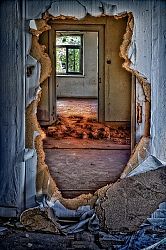

Miners' houses can be seen across England to this day. Originally built to house miners near to the collieries in which they worked, these houses are a tangible link to our industrial past.
Following the Second World War, the post-war housing shortage resulted in 200 'Airey houses' for miners being constructed in the village of Oulton, near Leeds. They were constructed from prefabricated concrete and recycled military vehicles, and housed miners working at the Rothwell Colliery. Only 70 of these houses remain, though their fate has now been decided via a planning inquiry.
Investment firm Pemberstone eventually purchased these houses and applied in 2017 to demolish them in order to build 71 new dwellings. Pemberstone argued that the structural condition of the homes meant that repairing them was not commercially viable. 11 of the 70 tenants in the Airey homes had protected tenancies, so would have to be re-homed, while the remaining 59 households believed they would be asked to leave with short notice and feared for the future of their close community.
Leeds City Council refused permission for these homes, though an appeal was lodged and an inquiry took place in October 2020.
The planning inspector noted in particular:
However, planning is all about a balance of factors, and the inspector also found that:
The inspector gave the negative impacts significant weight in the appeal. However, given the fact that major structural and renovation work was required in the very near future, and the fact that the new houses would bring some significant benefits, the inspector found that the positives outweighed the negatives.
He also acknowledged that the displacement of children was an "undesirable outcome", but given the condition of the houses was likely to be an inevitability regardless of the appeal outcome.
The appeal was therefore allowed, and the redevelopment of the site will be permitted.
It is understood that four of the houses will be preserved at Beamish Museum in County Durham, which is a living museum and preserves historical structures so that present generations can see how our ancestors lived.